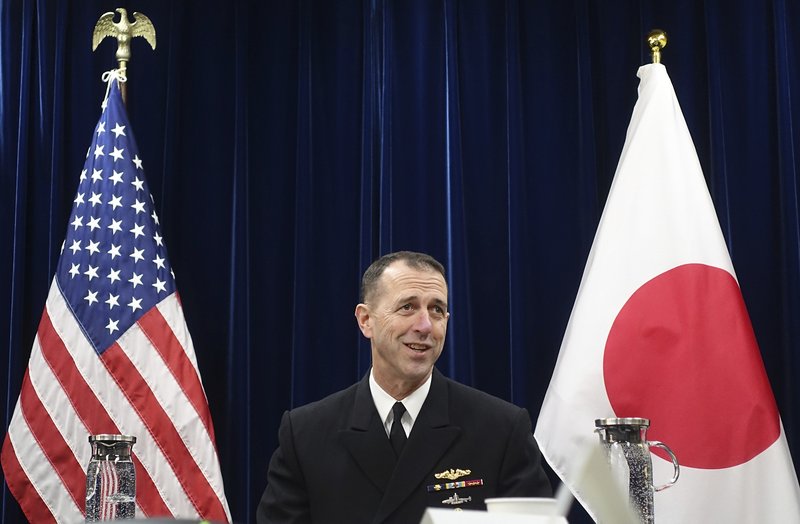TOKYO -- The U.S. Navy's top officer said he urged China to follow international rules at sea to avoid confrontations and insisted Friday that ships should be able to pass safely through disputed areas of the South China Sea and Taiwan Strait.
Chief of U.S. Naval Operations Adm. John Richardson told reporters in Tokyo that U.S. Navy ships will continue to operate freely in international waters, including the possibility of an aircraft carrier navigating through the Taiwan Strait.
Richardson, who held meetings in China earlier this week, said he told Chinese officials that the U.S. is committed to a one-China policy and is opposed to any unilateral action "from either side of the strait" to change the status quo.
Richardson said the U.S. considers the Taiwan Strait as international waters. "We don't see any kind of limitation on whatever type of ship could pass through those waters," he said.
His comment follows new tensions between the U.S. and China over Taiwan that have already been frayed over military and trade issues.
A report issued earlier this week by the U.S. Defense Intelligence Agency said China's growing military capabilities could pose a threat to Taiwan, angering Beijing. Washington is concerned that China is opting to use military force to deter Taiwan's possible independence. A Chinese Foreign Ministry spokesman said "we use rules rather than weapons to safeguard and promote our own interests," and that the U.S. should focus on cooperation with China instead of issuing such a report.
In recent years the South China Sea -- with rich fishing grounds, undersea resources and vital shipping lanes -- has become a focus of contention. China claims virtually the entire waterway on historical grounds and has strengthened its hold over islands there. While five other governments have overlapping claims, the U.S. takes no formal position on sovereignty but insists on the right to freedom of navigation and overflight.
Richardson said China should not see the U.S. naval operations in the area as a threat. He urged China to "be consistent" with international rules to avoid risks and confrontations, and said he told Chinese officials that communication channels are important in de-escalating tensions.
A Section on 01/19/2019

